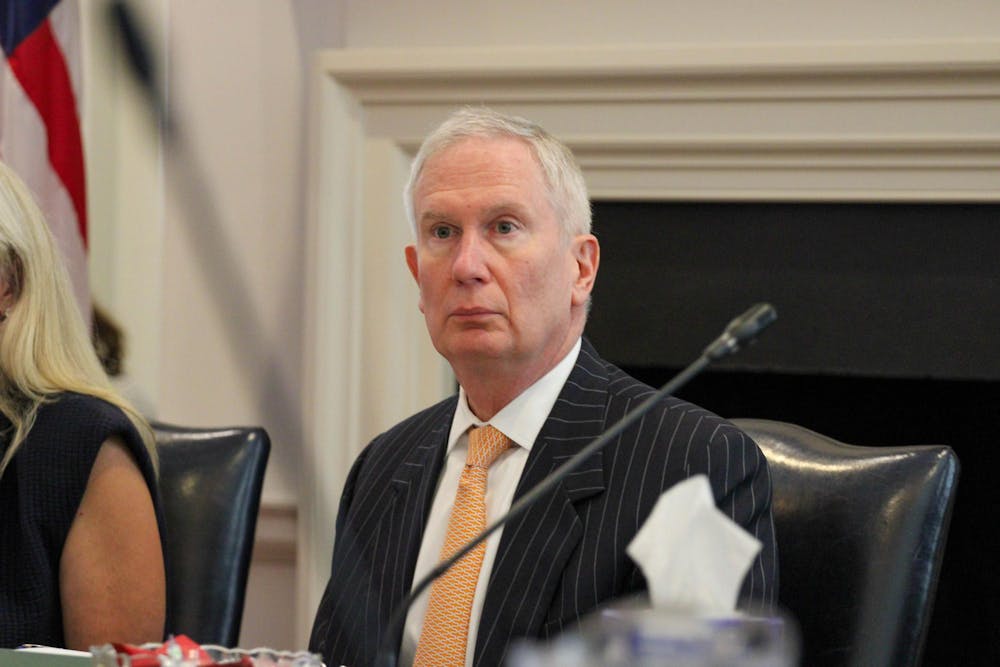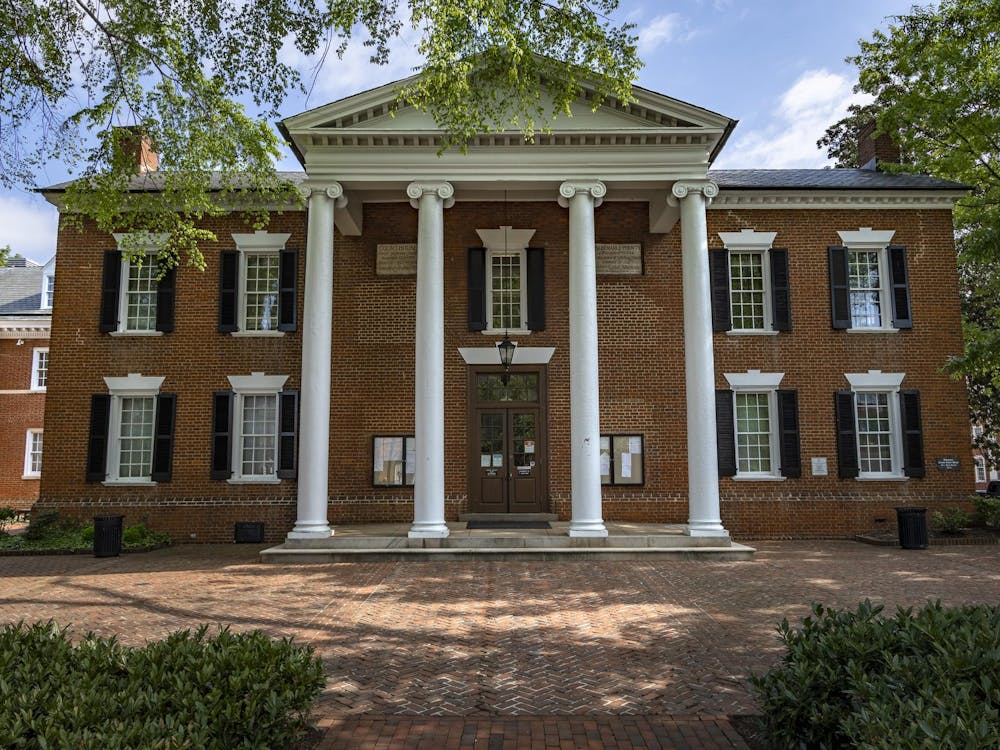Interim University President Paul Mahoney responded Friday to a letter from Senate Majority Leader Scott Surovell, D-Fairfax and State Sen. L. Louise Lucas, D-Portsmouth, sent Tuesday. In his letter, Mahoney defended the University’s decision to sign an agreement with the Justice Department, noting that a legal confrontation with the federal government would have been costly to the University.
“I do not share your concern that, by agreeing simply to affirm that we are not violating the law every quarter, the University has somehow surrendered itself to onerous federal interference (particularly in light of the far more detailed and impactful agreements other institutions have reached to resolve similar claims),” Mahoney wrote.
Surovell expressed disappointment with the letter and said that the University’s agreement with the Justice Department sets a “dangerous” precedent for other universities.
“I thought [the letter] was largely unresponsive, which has been a continuing pattern with the current Board of Visitors, and now the [interim] president,” Surovell said. “I don't think they seem to appreciate our responsibility to conduct oversight. The questions that we're asking aren't going away, and they're going to get answered sooner or later.”
The University signed an agreement with the Justice Department Oct. 22 which suspended five investigations into compliance with federal civil rights law. In the deal, the University agreed to comply with civil rights law and provide quarterly reports to the Justice Department on progress towards compliance. Provided that the University adheres to the terms, the investigations will be closed Dec. 31, 2028 — the end date of the agreement.
In their original letter, Surovell and Lucas outlined “deep concerns” about the deal. Their letter claimed that the agreement violates recent federal court precedents, that the guidance which the University agreed to in the deal goes “far beyond” existing civil rights law and that the deal is in direct conflict with Virginia law which requires state agencies to implement diversity, equity and inclusion plans.
Mahoney’s response said that while Surovell and Lucas had provided a detailed analysis of how the University might have sued the United States over a loss of federal funds based on “unreasonable” criteria, they had not considered the impacts of a legal confrontation with the federal government on the University. He said that the deal helped suspend the investigations while also preserving academic freedom and autonomy, without agreeing to terms that were particularly different from existing internal policies.
“The important question, therefore, is whether following the DOJ guidance imposes substantial burdens on U.Va.,” Mahoney wrote. “The answer is clearly no.”
The interim president went on to explain that the University had adopted guidance for admissions, scholarships and recruiting in 2023 which complied with a 2023 Supreme Court decision ending affirmative action. He also noted that the University had imposed additional guidance to ensure compliance with civil rights laws this spring, including a commitment to cease using race in hiring decisions.
Mahoney said that although there is still debate over the use of race in employment decisions, the University had already chosen not to consider these factors independently of its deal with the Justice Department.
“If you believe that the University should have refused to enter into the Agreement and instead sued the United States in order to preserve the theoretical possibility of doing things that we have decided not to do, I cannot agree,” Mahoney wrote.
The letter also notes that while Harvard University did choose to sue — as mentioned in the senators’ letter — it still suffered more than $100 million in operating funds and an 8.4 percent drop in federal support.
“I hope you will agree that any path to resolving these investigations without running those risks is worth pursuing,” Mahoney wrote. “Your letter notes that [federal] guidance sets certain boundaries that may not be clearly settled in the law. But there is no rule that universities cannot agree to follow federal guidance that might be susceptible to challenge in court.”
Mahoney also addressed a concern from the senators that the agreement was in conflict with a Virginia law that requires public institutions to implement diversity, equity and inclusion policies. He said that DEI programs are not prohibited by the agreement and that the University will continue to comply with both Virginia law and the agreement with the federal government.
“I also disagree with your statement that the University has agreed to do anything inconsistent with its obligation under Virginia Code § 2.2-602(B) to maintain a comprehensive diversity, equity, and inclusion strategic plan. The University will continue to comply with that obligation,” Mahoney wrote. “We do not understand the statute to require racial preferences in hiring or promotion decisions that would be inconsistent with DOJ’s guidance, and with our own.”
He noted that the University will pursue legal action only if, at some point, it finds the Justice Department’s interpretation of the agreement or the law to differ from its own.
The Cavalier Daily received Mahoney’s response from University Spokesperson Brian Coy.







